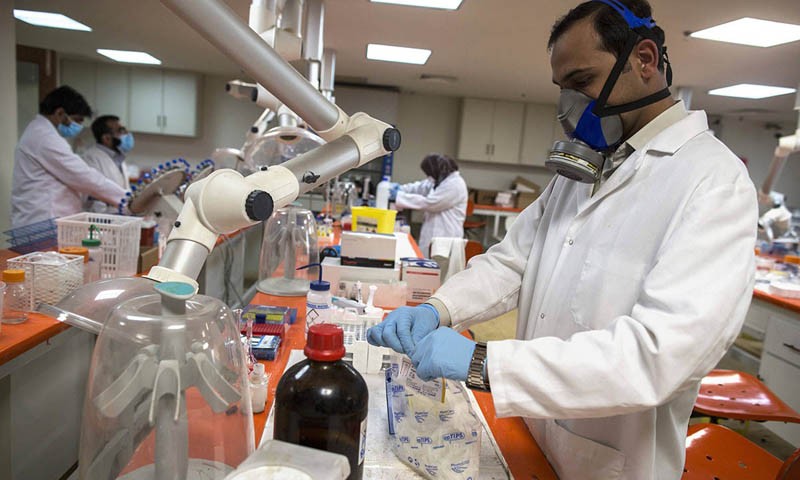
The overemphasis on science and technology among Pakistani academia

The common people as well as intelligentsia in Pakistan have a few common presumptions. One such presumption is about the role of science, not only in ameliorating the lot of the hapless and ill-fated people (Muslims in particular), but also as a sole instrument to make progress more generally.
Pakistan’s policy makers over-emphasise the significance of instruction in technology as a panacea for all ills the country is beset with. The regular chanting of the mantra that science is the only way out of our troubled state has sunk very deep into the consciousness of our policy makers. Even academia has come to believe in this.
As reported in an English daily from Lahore, Punjab University’s Vice Chancellor, Prof. Mujahid Kamran, in his Convocation speech on October 9, lamented that "rather than acquiring knowledge about natural phenomena [by which he must have meant natural sciences] Muslims had indulged in seeking knowledge about human activities, languages and literatures [obviously trying to plead against the notion that social sciences and humanities could be of any utility for Muslims at large]". The speech as reported appears to be riddled with inconsistencies, confusion and misperceptions. By employing a broad-brush approach and consigning all Muslims as a single socio-religious category, he is repeating a fallacy that academe should try to steer clear of.
With countless hues and sects and with no singular religious authority, the Muslims of the entire world can hardly be bandied together as one demographic category. Fissures of ethnicity and sectarian antipathy run very deep, thus preventing them from being a single political-religious entity. One may argue that religious affiliation ought to be re-imagined in national terms instead of aimlessly resorting to engaging with the universal imaginary of Muslim Ummah.
In his speech, he has also alluded to the core theme of his book, in which he claims to have "documented how the wealth and resources of the world were controlled by a few families in the US". He has also underscored the well-known fact that "these commercial elites were more powerful than most states" and had their own secret agencies to keep dissent in check.
He has suggested that the Muslims can redeem themselves only by introducing the financial system proposed by the Holy Quran. One can only beg the honourable Vice-Chancellor of the biggest University in Pakistan to confine himself to his own area of expertise instead of treading on unknown paths of economics and political studies.
Reverting to my original comments, the strangest thing in academia is a scientist so immaculately overtaken by conspiracy theories. However, in the lines to follow, we are concerned with Prof. Kamran’s exhortation to the Muslims to acquire knowledge of what he calls ‘natural phenomena’ instead of languages literature and human affairs.
It is interesting to invert the presupposition of our protagonist by saying that the social and human sciences hold the key for any nation or community’s sustenance and progress. To prove the point, one may put forward the example of the Soviet Union and its allied nations. Despite having made substantial breakthroughs in the fields of science and technology, they failed to hold themselves together.
Dr Muddassar Farooq, a well-known Pakistani scientist and Dean at the Institute of Space and Technology, discussed the remarkable level of scientific research being conducted in Eastern European countries, even two and a half decades after the fall of Berlin wall. The standard and academic rigour observed in some of those countries even surpasses Western academia. What caused the erosion leading to a complete collapse was their relative indifference to social sciences and humanities, which were confined by the ideological cap of communism.
In the advancement of the West, the discoveries of Copernicus and Newton are matched with the academic and artistic endeavours of Shakespeare, Goethe, Beethoven, Leonardo Da Vinci and Michelangelo. Thus, the academic is an all-encompassing activity requiring a comprehensive plan and concerted effort. The phenomena generated by the application of scientific norms and technological tools throw up new sets of socio-cultural challenges, which can only be addressed by social scientists, artists and people from the humanities.
Conversely, political exigencies and historical necessities more often than not force people to make new scientific discoveries like gunpowder and the internet.
All said and done, which field of knowledge holds precedence over the other is a complex undertaking that is hard to determine. Any serious academic should abstain from holding a clearly-defined position in this regard.
What needs to be brought into focus here is the enabling social and cultural environment that helps scientific knowledge to sprout and flourish. Scientific knowledge is not fomented and spawned in a vacuum; it has to have a certain human situation to grow and thrive.
Arab nations are spending exorbitant sums on their university education, which is almost entirely devoted to the dissemination of knowledge in the fields of science and technology. Saudi Arabia has ear-marked a budgetary allocation to the tune of $36 billion in the coming few years. However, no one expects anything less than a miracle if, in spite of all this spending, it would be able to equip its posterity with scientific knowledge, unless it could also bring about structural changes in its social and political order. It is imperative for critical thinking to grow there, which is a pre-requisite for science to strike root and subsequently flourish in the otherwise dull and dreary milieu of the Arabs. The same holds true for Qatar and Kuwait.
Meanwhile one does hope that Prof. Kamran, in view of all that has been said without any malice, might reconsider his formulations.